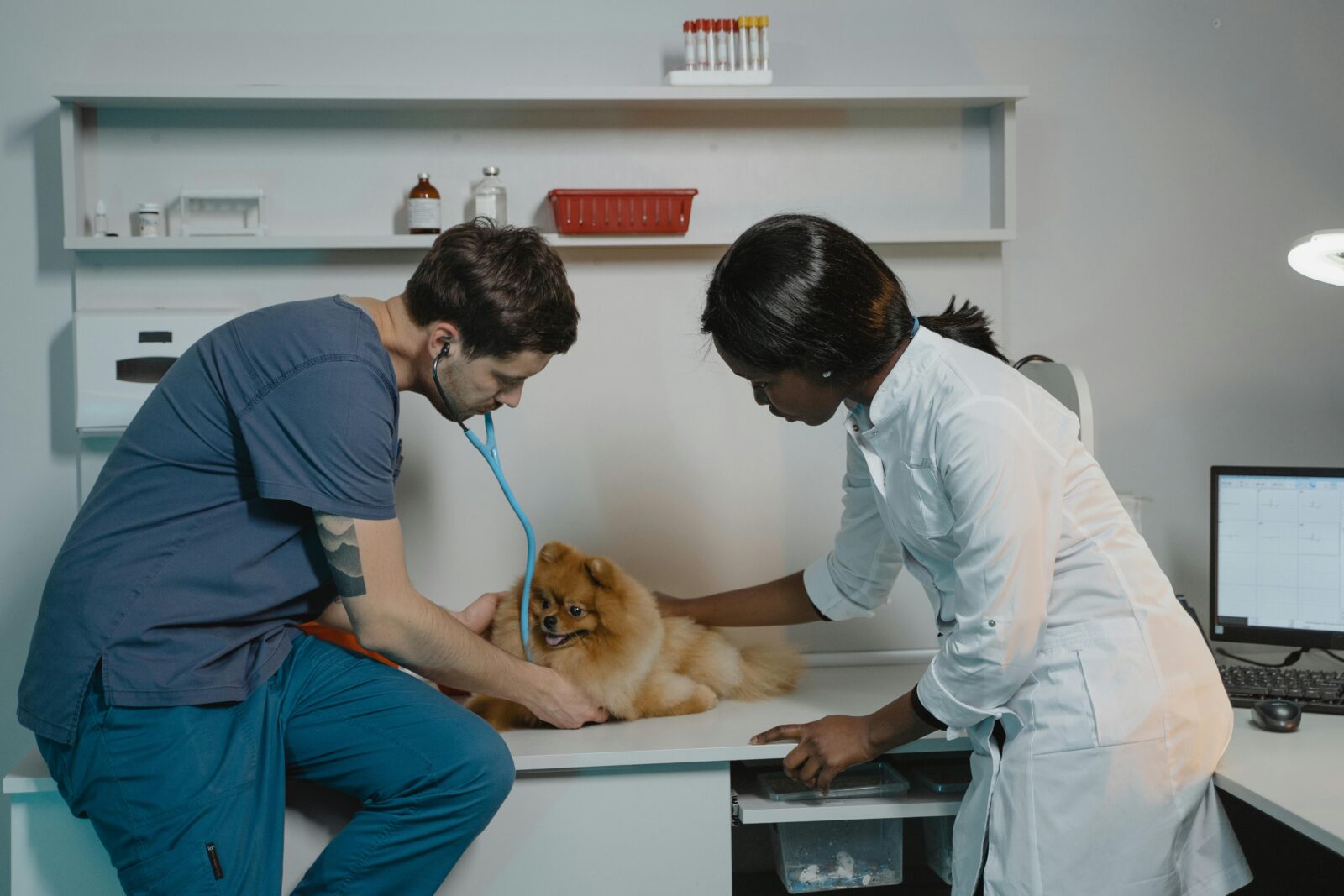As a pet owner, keeping your furry friend healthy and happy is a top priority. However, pets, like humans, are susceptible to various health issues that can affect their quality of life. Understanding these common health problems, recognizing the symptoms, and implementing preventive measures can make a significant difference in your pet’s overall well-being. In this guide, we’ll explore the most prevalent health issues in pets and provide tips on how to prevent them.
1. Obesity
Overview:
Obesity is a growing problem among pets, particularly dogs and cats. It occurs when pets consume more calories than they burn, leading to excess body fat. Obesity can lead to severe health problems, including diabetes, heart disease, and joint issues.
Symptoms:
- Excess body weight
- Difficulty moving or exercising
- Shortness of breath
- Lethargy
Prevention Tips:
- Balanced Diet: Feed your pet a high-quality, balanced diet that meets their nutritional needs without excess calories.
- Portion Control: Measure your pet’s food to avoid overfeeding and reduce treats, especially high-calorie ones.
- Regular Exercise: Ensure your pet gets regular exercise, such as walks, playtime, or interactive toys that keep them active.
- Routine Checkups: Schedule regular vet visits to monitor your pet’s weight and overall health.
2. Dental Disease
Overview:
Dental disease is one of the most common health issues in pets, affecting up to 80% of dogs and cats by age three. It includes problems like plaque, tartar buildup, gum disease, and tooth decay, which can lead to pain, infections, and even tooth loss.
Symptoms:
- Bad breath
- Red, swollen gums
- Yellow or brown tartar buildup on teeth
- Difficulty eating or chewing
Prevention Tips:
- Regular Brushing: Brush your pet’s teeth regularly using pet-safe toothpaste and a soft brush to reduce plaque buildup.
- Dental Chews: Provide dental chews and toys that help clean your pet’s teeth and massage their gums.
- Professional Cleanings: Schedule regular professional dental cleanings with your veterinarian to maintain oral health.
- Regular Checks: Inspect your pet’s mouth frequently for signs of dental issues and consult your vet if you notice any abnormalities.
3. Parasites (Fleas, Ticks, and Worms)
Overview:
Parasites such as fleas, ticks, and worms can cause various health problems, from minor skin irritations to severe internal damage. Fleas and ticks are external parasites that can spread diseases, while worms (roundworms, hookworms, etc.) live inside the pet’s body and can cause gastrointestinal issues.
Symptoms:
- Scratching, biting, or licking skin
- Visible parasites (fleas, ticks) on the skin or coat
- Weight loss, diarrhea, or vomiting (worms)
- Lethargy and anemia
Prevention Tips:
- Regular Parasite Prevention: Use vet-recommended flea, tick, and worm preventatives regularly to protect your pet.
- Maintain Cleanliness: Keep your pet’s living environment clean, wash bedding frequently, and vacuum regularly to reduce the risk of parasites.
- Routine Vet Visits: Regular veterinary checkups can help detect parasites early and ensure your pet is on the correct preventative medication.
- Inspect Pets: Check your pets for ticks, especially after outdoor activities, and remove them promptly with proper tools.
4. Ear Infections
Overview:
Ear infections are common, especially in pets with floppy ears, like Cocker Spaniels or Basset Hounds. They are often caused by bacteria, yeast, or allergies and can lead to discomfort and hearing loss if left untreated.
Symptoms:
- Shaking head or scratching ears
- Red, inflamed ear canal
- Unpleasant odor from the ears
- Discharge from the ear
Prevention Tips:
- Regular Cleaning: Clean your pet’s ears regularly using a vet-recommended ear cleaner to remove wax and debris.
- Dry Ears Thoroughly: Dry your pet’s ears thoroughly after baths or swimming to prevent moisture buildup, which can lead to infections.
- Monitor for Allergies: Be aware of any allergies that may contribute to ear infections and manage them accordingly with your vet’s guidance.
- Routine Checks: Regularly check your pet’s ears for signs of infection and consult your vet if you notice any issues.
5. Skin Allergies and Dermatitis
Overview:
Skin allergies and dermatitis are common in pets and can be triggered by various factors, including food, environmental allergens (like pollen or dust mites), and parasites. These conditions can cause itching, redness, and discomfort.
Symptoms:
- Persistent scratching, licking, or biting at the skin
- Red, inflamed patches of skin
- Hair loss or bald spots
- Skin rashes or hives
Prevention Tips:
- Identify Triggers: Work with your vet to identify and avoid potential allergens that may be causing your pet’s skin issues.
- Regular Grooming: Groom your pet regularly to remove loose fur, dirt, and potential allergens from their coat.
- Proper Diet: Feed your pet a high-quality diet that supports skin and coat health, possibly including omega-3 fatty acids.
- Use Hypoallergenic Products: Use hypoallergenic shampoos, bedding, and cleaning products that are less likely to irritate your pet’s skin.
6. Urinary Tract Infections (UTIs)
Overview:
Urinary tract infections (UTIs) are common in both cats and dogs, particularly in females and older pets. UTIs can cause discomfort, pain, and serious complications if untreated, such as kidney infections.
Symptoms:
- Frequent urination or straining to urinate
- Blood in urine
- Accidents in the house
- Licking the urinary opening
Prevention Tips:
- Encourage Hydration: Ensure your pet has access to fresh water at all times to help flush the urinary tract.
- Regular Bathroom Breaks: Allow your pet frequent bathroom breaks to avoid bladder issues.
- Proper Hygiene: Keep your pet’s living area clean to reduce the risk of bacterial infections.
- Monitor Behavior: Watch for signs of discomfort or changes in urination habits and consult your vet if you suspect a UTI.
7. Arthritis and Joint Problems
Overview:
Arthritis and other joint problems, such as hip dysplasia, are common in older pets and certain breeds. These conditions cause inflammation and pain in the joints, leading to decreased mobility and quality of life.
Symptoms:
- Limping or stiffness, especially after rest
- Difficulty climbing stairs or jumping
- Decreased activity or reluctance to exercise
- Swollen or painful joints
Prevention Tips:
- Maintain a Healthy Weight: Keeping your pet at a healthy weight reduces stress on the joints and can prevent arthritis.
- Regular Exercise: Regular, moderate exercise helps keep joints flexible and muscles strong, which supports joint health.
- Joint Supplements: Consider adding joint supplements, such as glucosamine and chondroitin, to your pet’s diet, especially for breeds prone to joint issues.
- Comfortable Bedding: Provide your pet with comfortable, orthopedic bedding to reduce pressure on their joints.
8. Respiratory Infections
Overview:
Respiratory infections, such as kennel cough in dogs or upper respiratory infections in cats, are contagious illnesses that affect the respiratory system. They are often caused by bacteria, viruses, or fungi and can spread rapidly, especially in environments like kennels or shelters.
Symptoms:
- Coughing or sneezing
- Nasal discharge
- Difficulty breathing
- Fever and lethargy
Prevention Tips:
- Vaccinations: Keep your pet’s vaccinations up to date to protect against common respiratory infections.
- Avoid Exposure: Limit your pet’s exposure to infected animals, especially in high-risk environments like kennels.
- Clean Living Space: Maintain a clean environment with good ventilation to reduce the risk of respiratory infections.
- Monitor Symptoms: If your pet shows signs of a respiratory infection, consult your vet immediately for diagnosis and treatment.
Conclusion
Understanding common health issues in pets and taking proactive steps to prevent them can greatly enhance your pet’s quality of life. Regular vet visits, proper nutrition, and preventive care are key to keeping your furry friends healthy. Always consult your veterinarian if you notice any changes in your pet’s behavior or health to address issues early and keep them on the path to a happy, healthy life.











Leave a Reply